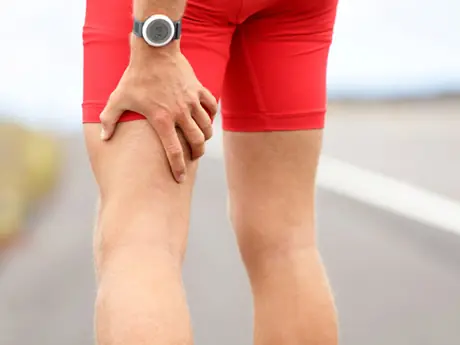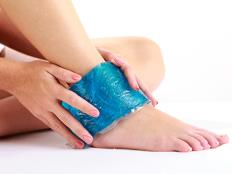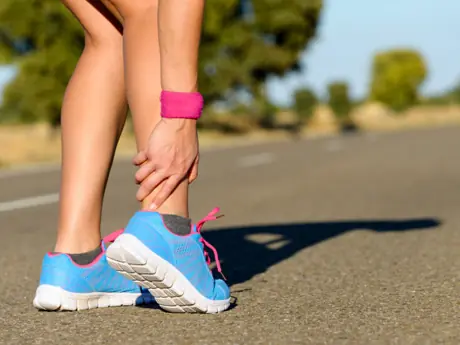In an ideal runner's world, every step of every mile would be 100 percent pain-free. No aches, no twinges, no lingering soreness from yesterday's workout. The reality is that many runners constantly deal with a slight (or not so slight) disturbance—a tender foot, a tight hamstring, a whiny knee. While these nagging issues often aren't serious enough to require a time-out, they are annoying, especially when they don't let you fully enjoy your time on the roads.
Think of running pains in terms of a spectrum. At one end you have severe, full-blown injuries—call it the red zone, which includes stress fractures that require time off. The other end, where you're in top form, is the green zone. Mild, transient aches that bug you one day and disappear the next sit closer to the green end. Unfortunately, many runners get stuck in the middle—the not-quite-injured but not-quite-healthy yellow zone.
Whether you land in the red, linger in the yellow, or return to the green end of the spectrum depends largely on how you react when that first stab of pain hits, says Richard J. Price, M.D., a sports physician at Rocky Mountain Orthopedic Associates in Grand Junction, Colorado.
"Often it comes down to whether you take a little time off now or a lot of time off later," he says. You can reduce your risk of ending up in the red zone if at the first sign of an issue, you back off your mileage, reduce the intensity of your runs, start a treatment program, and develop a proactive long-term injury-prevention strategy, such as strength training, stretching, and regular foam-rolling. "Physical therapy is like homework," Price says. "None of us likes having to do it, but if you don't do it, the issue will come back."
According to Price and a team of doctors and physical therapists consulted in the following pages, there are seven injury hotspots that most frequently plague runners. If you don't get a handle on them, these issues can trap you in that nefarious yellow zone, or worse, turn into an acute injury that forces you to take a layoff. Instead, let’s those keep annoying pains in check so you can move into—and, with hope, stay in—the green zone.
- 1
- of
- 8
Get ACTIVE on the Go


Couch to 5K®
The best way to get new runners off the couch and across the finish line of their first 5K.
Available for iOS | Android







Discuss This Article